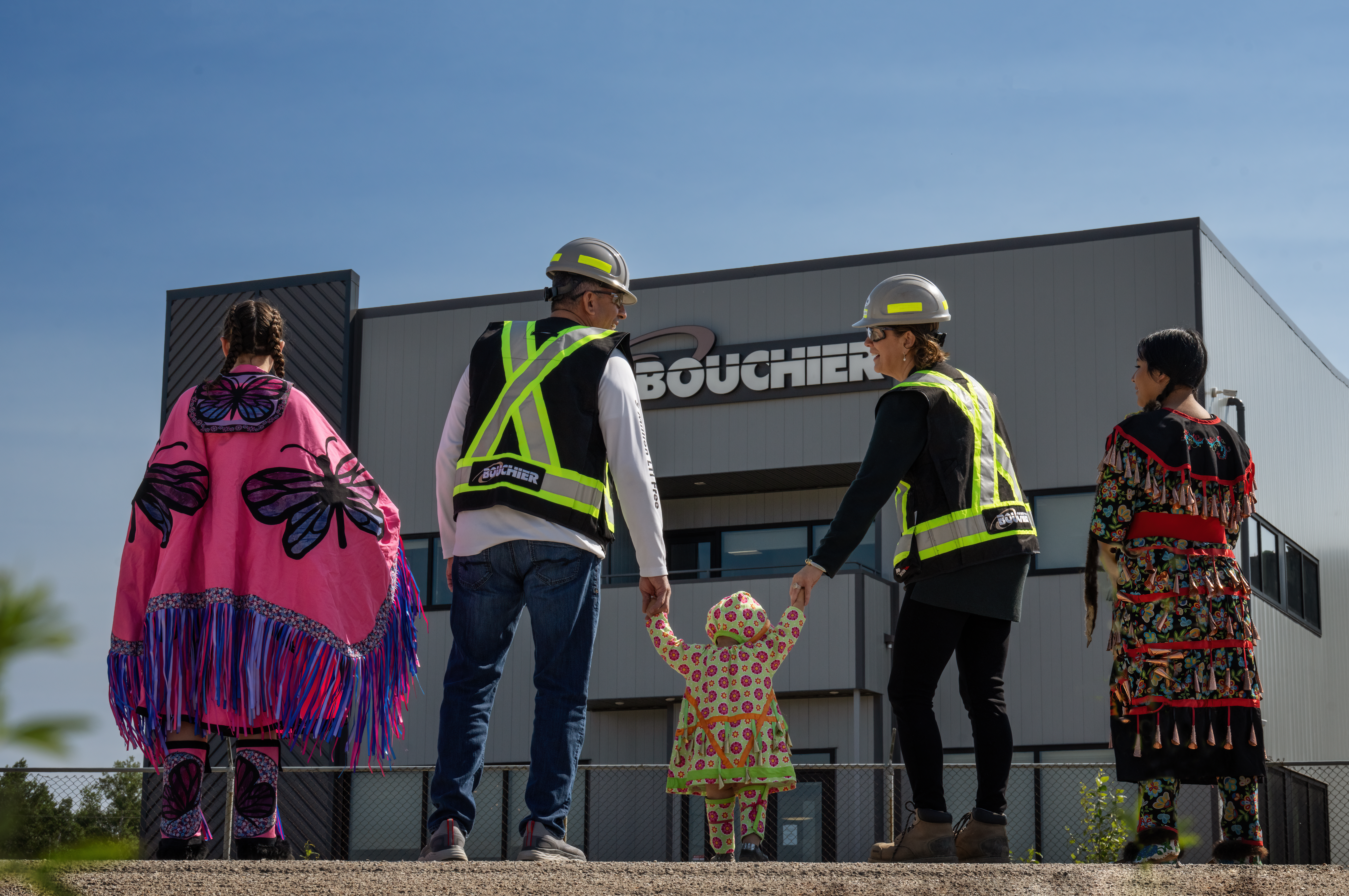Supporting mental health in Indigenous communities in the Athabasca region
November 7, 2024
An imposing brick building perched atop a hill, the Holy Angels Residential School overlooked Fort Chipewyan for the better part of a century.
Closed in 1974, the building was demolished the following year. But what happened within its walls continues to affect generations of the community’s residents 50 years later.
Dealing with that historical trauma and its lingering legacy of psychological scars has led to a focus on the serious mental health challenges for Indigenous communities in Canada.
These were driving factors behind the Canadian Mental Health Association (CMHA) of Wood Buffalo’s Peer Connection Project for Indigenous communities in the Athabasca region. Started in September 2023, the program includes peer mentorship and collaboration with schools with support for mental health, addictions and recovery.
The program has succeeded in helping people because the CMHA peer support team doesn’t come into the communities as clinicians seeking to treat patients, says Lori-Ann Laviolette, Social Worker and Development Manager for the Athabasca Chipewyan First Nation (ACFN).
“They come in as people with a desire to learn about the community and Indigenous approaches,” says Laviolette, who is also an ACFN member. “Jodi Collins, one of the CMHA mental health coordinators, visits one of our community members often, and they bonded over their mutual love of plants—this member’s house is filled with them. Over time, they built a relationship and a safe place for the member to seek mental health support.”
The willingness of the CMHA project team to pitch in beyond the program has helped earn trust and respect among residents, Laviolette says.
“They will come and help in the communities and lend a hand. If hampers are being distributed, they will pitch in and help hand them out,” Laviolette says. “And because they have a presence in the community and have a desire to assist people beyond their program, it’s easier for community members to trust them. So when they are doing peer support, the have a foundation to build on to help them navigate hardships.”
While not a resident, Collins understands the wider challenges faced in Fort Chipewyan, a remote community of about 900 people located on the western tip of Lake Athabasca, 220 kilometres north of Fort McMurray.
“Food is incredibly expensive in Fort Chipewyan so when we do programming, we often bring meals to the sessions as a way to connect and show appreciation for welcoming us into the community,” says Collins. “Whatever community we go into, we go there to listen to their needs. We never assume. It’s more about the conversations we have with community members so they can be heard and understood. And it’s a safe space for them.”
That approach, Laviolette says, has helped build trust and rapport in Fort Chipewyan.
“That desire to be in the community means that everybody knows who they are. And they come in as a friend, not as a psychologist or counsellor, although they are highly skilled professionals,” Laviolette says.
That praise is echoed by Leah Pettipas, Program Coordinator – Family Support for the Fort McKay First Nation.
“Having CMHA engage with our community has been highly successful. The team has effectively established relationships with outreach workers and provided valuable feedback on initiatives they believe will benefit our community,” Pettipas says. “CMHA plays a crucial role in our community by facilitating difficult conversations and offering an external perspective. We greatly value our relationship with CMHA and look forward to its continued growth and success.”
Funding for the program, which is intended to serve ACFN, the Fort McKay First Nation, the Mikisew Cree First Nation, Fort McMurray 468 First Nation, Fort Chipewyan Métis, Fort McKay Métis and McMurray Métis, was provided by Imperial, a Pathways Alliance member company.
“This funding allowed us to build the program and these relationships. We would not have been able to get into communities with our regular funding given the costs of travel,” says Susan Goll, CMHA Wood Buffalo’s executive director. “And ensuring you are in the community consistently is very important in building trust and relationships.”
For her part, Laviolette appreciates the positive impact the program has made on the community.
“We are very happy to have them in the community. We worked with them collaboratively in the past but this grant allows them to do the work independently,” she says. “Investing in programs like this that help support mental health challenges is a step in the right direction and is an example of how companies can use their dollars for good.”


